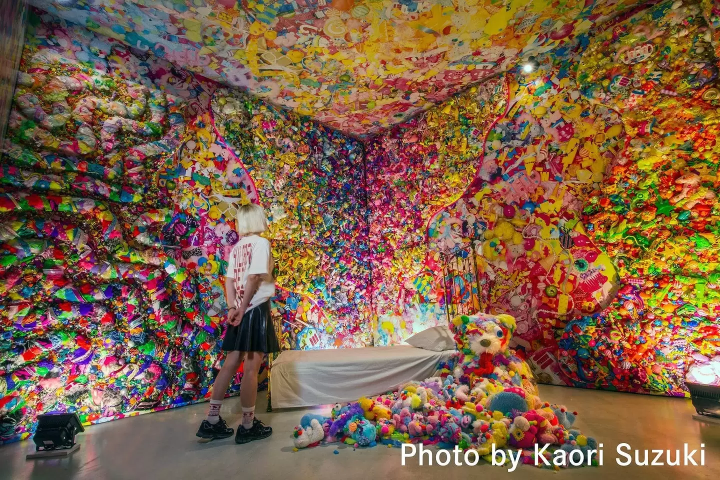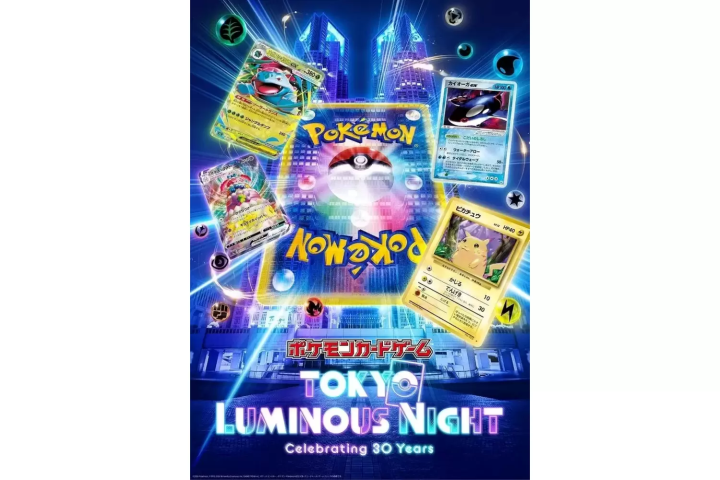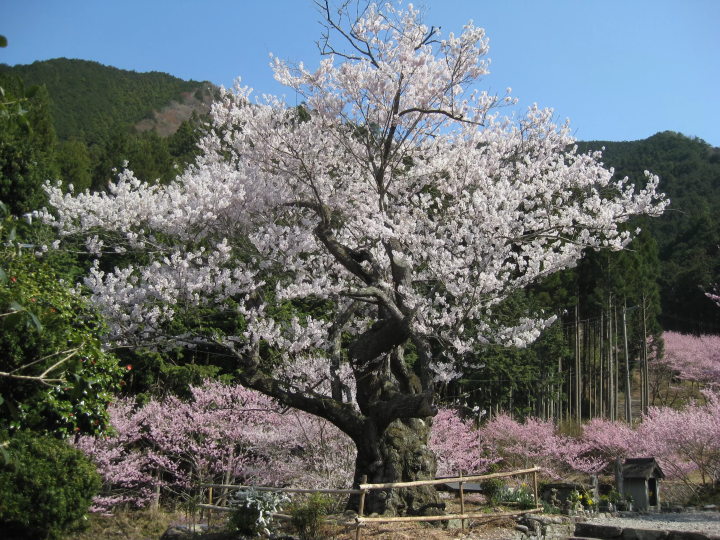Buoy: A brand that upcycles marine plastic waste

It was launched by a plastic manufacturer in Yokohama called "buoy," a brand that breathes new life into marine plastic waste, transforming it into colorful products. The products, made 100% from marine waste, make use of the colors of the waste itself, resulting in a finish so cute that it's hard to believe that it was originally trash. There are over 40 different products on display, ranging from household items such as key chains, trays, and coasters to interior items like clocks and lampshad...
Japan's seas are dirty

Japan is an island nation with many tourist spots where you can see beautiful oceans and coastlines, and we have lived off the blessings of the sea since ancient times.
However, the ocean is currently facing a problem.
It's the marine debris problem.
Currently, huge amounts of marine litter are washed ashore in Japan from China, Korea, Taiwan, and Southeast Asia by the main ocean currents in the area. In addition, due to the influence of the westerly winds blowing from the northwest, it is said that a lot of litter washes ashore especially in the Kyushu region and on the Japan Sea coast, and when you look at the breakdown of the litter, the majority is plastic products, mainly fishing gear.
What would happen if the marine plastic waste that washed up on Japan's shores today was left unpicked?
Any trash that is not collected will be washed back into the ocean by wind and waves, travelling on ocean currents until it ends up forming a garbage dump near the American continent. The impact of being washed up on the shore and exposure to ultraviolet light will cause it to degrade over time and break into small fragments. Plastics that are less than 5 millimeters in size are called microplastics, and when they get this small, not only are they difficult to collect, but they also increase the risk of being accidentally ingested by birds and marine life.
And it is clear that plastic, which does not disappear even after it becomes smaller but continues to remain in the natural world, causes great damage to ecosystems. The problem of marine litter is not a problem that only certain countries face, but a problem that the entire world must work towards solving.
Why did you decide to make products from marine plastic waste?
The buoy brand was born about five years ago by Techno Lab, a plastic manufacturer based in Yokohama.
Plastic has become a part of our daily lives and has made many impossible things possible, but at the same time, its production is increasing year by year, and the large amounts of plastic that have ended up in the ocean have become a global issue. Plastic is produced on the premise of mass production, mass consumption, and mass disposal, and as the term "disposable plastic" suggests, there is no resistance to throwing it away because it is easy and cheap to obtain. It is this consumer behavior that is creating the current problems.
Techno Lab has manufactured a lot of plastics with the desire to make the world a better place and to be useful to people. However, we feel saddened by the fact that plastic is now being treated as if it is bad in itself, and at the same time, we began to think that there must be something that only a plastic manufacturer can do.
Furthermore, when speaking with volunteer groups involved in beach clean-ups all over Japan, we often hear them say, "No matter how much we pick up, it just gets buried, and a week or a month later it's back in the same state, so it's pointless to just keep repeating the same thing."
So we thought we would like to help the local people who continue to protect Japan's beautiful seas. We purchase marine plastic waste from each region at a valuable price as the raw material for our products. This is because there is a limit to how much volunteering and goodwill can sustain beach cleanup activities. In order to pass on Japan's beautiful seas to the next generation, beach cleanup activities must also be sustainable.
Buoy exists with the desire to take plastic that has been discarded and return it to society, to create products that can be loved again by someone else, and to provide sustainable support to people suffering from marine debris in various parts of Japan.
Special technology that made the impossible possible

Techno Lab has utilized the plastic knowledge and manufacturing technology it has cultivated over the years to develop a unique molding method that allows it to create products using 100% marine plastic.
No coloring or additives are used, and the finished product makes use of the natural color of the trash. There are nearly 100 types of plastic, which have been developed according to their intended use and function, and so the melting points vary depending on the material. Therefore, in order to recycle them as raw materials, it is necessary to carefully separate them by type, but this is not possible with marine trash. This is because washed-up trash does not have the name of its material written on it, so it is unclear where it came from or what it was originally made of, and it may contain materials that are not plastic, such as shells or sand.
For these reasons, it cannot be recycled, and since it contains salt, it cannot be incinerated because it can cause breakdowns in incinerators, and so marine waste is basically sent to landfills. However, in order to do something about the marine plastic waste that has nowhere to go, we have succeeded in molding it without sorting it, by adjusting the appropriate temperature, pressure, and time, even if it has some shells or sand attached.
When we think of plastic products, we think of mass production, but BUOY is not mass-produced; all of the manufacturing process is done by hand. The raw material, marine plastic waste, contains unknown materials, and it is not known how it will dissolve until it is melted, so each piece must be checked and adjusted as it is shaped. Finally, there is a process called deburring, where each piece is shaped with a cutter knife, and all of them are
This is possible only thanks to the delicate and careful work of our craftsmen. Also, because our products are made from 100% marine debris, the weight of the product is the same as the weight of the debris that was collected. We want customers who pick up our products to feel the fact that this much debris was lying around and that someone collected it.
Although buoy's products are made of plastic, they are one-of-a-kind "handicrafts" that can never be repurchased once they are thrown away.
Description of place of origin (garbage collection area)
Buoy is a business that exists thanks to people who collect marine debris all over Japan.
That's why the main players are volunteer groups, and we hope that buoy will provide an opportunity for people who pick up the product to learn about the current situation in the waste collection areas and the appeal of the land.
For this reason, all buoy products are sold with a QR code that shows the place of origin (the area where the marine debris was collected) and information about the organization. It might be a good idea to express your gratitude through social media or visit the area. Your feelings will surely be an encouragement to local volunteer organizations.
A brand that exists only to disappear someday
buoy hopes that its products and this initiative will inspire beach clean-up activities, and that people will no longer be able to make their products because they will no longer be able to pick up trash.
The unique colors and patterns of the buoy have fascinated many people.
It is our responsibility as a plastic manufacturer to convey the current state of the ocean, return once-discarded plastic to society, and create products that will be loved again by someone.
We aim to one day eliminate buoys, and today we continue to deliver products to you with our thoughts in mind.
Buoy is an upcycling brand created from marine plastic waste. We sell household goods and interior accessories, offering colorful, unique products made entirely from 100% marine waste. Here, we’ll share a variety of information, from the current state of marine waste to the attractions of the local area.
The contents on this page may partially contain automatic translation.






























![[Southern Oita Prefecture (Usuki and Saiki)] A journey through fermentation and tradition. Oita Sustainable Gastronomy](https://resources.matcha-jp.com/resize/720x2000/2026/02/27-259975.webp)

![[Hiroshima] ORIZURU Making at the Hotel / Sheraton Grand Hiroshima Hotel](https://resources.matcha-jp.com/resize/720x2000/2026/02/26-259811.webp)
![[Aichi] 30 minutes from Nagoya! 8 must-see tourist spots in Tokoname, the city of beckoning cats and pottery](https://resources.matcha-jp.com/resize/720x2000/2026/02/26-259808.webp)